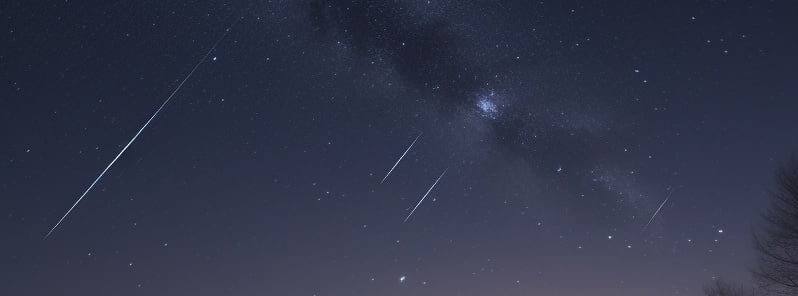Unconventional birth of Geminid meteor shower unearthed by Parker Solar Probe

The Geminid meteor shower, one of the most spectacular yearly celestial events, was likely created by a sudden and violent occurrence, according to new findings by NASA’s Parker Solar Probe mission. These findings, published recently in The Planetary Science Journal, provide fresh insights into the origins of this meteor stream which, unlike most, emanates from an asteroid named 3200 Phaethon.
Diving into the mystery of the Geminid meteors, scientists have uncovered evidence hinting at a cataclysmic event behind its creation. Contrary to the commonly held understanding that meteor showers originate from comets, the Geminid meteor stream seems to be born of an asteroid, a rock and metal entity named 3200 Phaethon.
Research scholar at Princeton University, Jamey Szalay, expressed the puzzling nature of this asteroid, “What’s really weird is that we know that Phaethon is an asteroid, but as it flies by the Sun, it seems to have some kind of temperature-driven activity. Most asteroids don’t do that.” Szalay is an author of the science paper recently published, with Wolf Cukier as the lead author.
This investigation is built upon earlier work carried out by Szalay and his Parker Solar Probe mission colleagues, including the analysis of direct Geminids images taken by Karl Battams’ team. The research aims to understand the structure and behaviour of the massive dust cloud swirling through the innermost solar system.
The Parker Solar Probe, managed by the Johns Hopkins Applied Physics Laboratory (APL) in Laurel, Maryland, provided an unprecedented direct look at the dust grains shed from passing comets and asteroids, thanks to its flight path that allows it to swing just millions of miles from the Sun — closer than any spacecraft in history.
While the Probe doesn’t possess a specific dust counter for measuring grain mass, composition, speed, and direction, it does experience the pelting of dust grains along its path. These high-speed impacts result in unique electrical signals or plasma clouds. These impact clouds generate distinctive electrical signals captured by several sensors on the probe’s FIELDS instrument, which measures electric and magnetic fields near the Sun.
Armed with the Parker Probe data, researchers modeled three potential formation scenarios for the Geminid stream. These models were then juxtaposed with pre-existing ones derived from Earth-based observations. The violent models, suggesting a sudden, powerful event like a high-speed collision or a gaseous explosion, emerged as the most consistent with the Parker data.
References:
1 Formation, Structure, and Detectability of the Geminids Meteoroid Stream – Cukier and Szalay – The Planetary Science Journal – June 15, 2023 – DOI 10.3847/PSJ/acd538 – OPEN ACCESS
2 Scientists Shed Light on the Unusual Origin of a Familiar Meteor Shower – NASA/ParkerSolarProbe – June 14, 2023
Featured image credit: The Watchers (stock)

Commenting rules and guidelines
We value the thoughts and opinions of our readers and welcome healthy discussions on our website. In order to maintain a respectful and positive community, we ask that all commenters follow these rules.